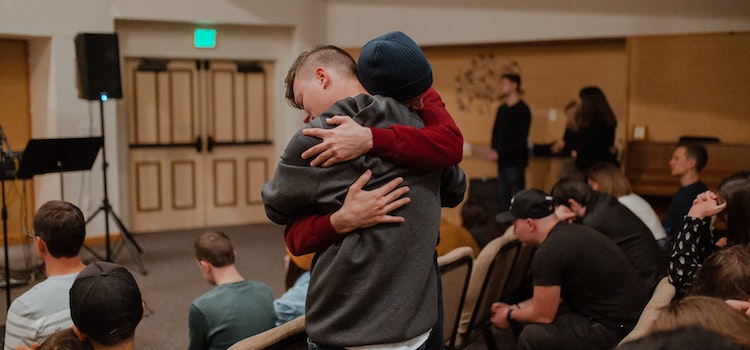

This article is an excerpt from the Shortform book guide to "The Righteous Mind" by Jonathan Haidt. Shortform has the world's best summaries and analyses of books you should be reading.
Like this article? Sign up for a free trial here .
What are the benefits of religion in society? How does religion help make us better as individuals and communities?
Social psychologist Jonathan Haidt argues that we must understand religion primarily as a social driver that brings people into a community around a belief. Ultimately, this helps us find our moral foundation.
Read more to understand the benefits of religion, according to Jonathan Haidt.
How Religion Makes Us Better
Haidt outlines three ways religion benefits society: community, altruism, and moral behavior.
Benefit of Religion #1: Community
Community is important in finding our moral foundations and tribes. One of the strongest communities—that’s sometimes dismissed as an unthinking cult by many on the left—is a religious community. Religion doesn’t exist only in churches or mosques—it’s all around us and doesn’t always have a traditional “God” at its head.
Religion doesn’t always have that much to do with explaining the universe, as many people think. Rather, it provides the social fabric that binds people together.
A college football game is analogous to the community that’s built around religion. Students and alumni dress up and participate in rituals that have been around for decades if not a century. From the outside, it looks costly and purposeless if not dangerous. But thinking about it from a sociological perspective, it brings people into a hive where they’re worshiping something greater than themselves. It changes people’s experience with a school, which in turn leads to more donations and a better experience for everyone in the community.
Many people don’t understand religion (or appreciate the benefits of religion) because they focus on the spiritual and supernatural beliefs that come along with it. They have difficulty describing it or understanding it as a primarily social driver that brings people into a community around a belief.
Benefit of Religion #2: Altruism
The New Atheists say religion is the root of a lot of evil in the world. A lot of religious believers say that atheists are immoral. Surveys show that religious people give more money to charity, but are no more likely to actually help strangers when presented the chance.
What religion does do, and what we should expect from the hive mentality, is that it makes people more generous within their own communities. They’ll volunteer or give a lot of their income through their religious organizations. A second benefit of religion is altruism.
The question is whether religions create bonds that allow people to turn their back on, or even prey on, people who aren’t in their group. Studies from Putnam and David Campbell show that actually, religious people are more likely to give money to any sort of charity and are more generous with their time. Referring back to the ideas of belief, belonging, and doing, they are more likely to “do” because of their belief and their sense of belonging.
In Putnam and Campbell’s study, they asked various questions about religious beliefs, like “do you believe in hell?” Or “how often do you pray?” How respondents answered these questions didn’t change how much or little they cared for others. In other words, being more committed to religious beliefs does not change how generous religious people are. The only association that they found between religious people and being more community-oriented was how comfortable religious believers felt in their religious communities. The group activities that people who are religious—no matter their religion—engage in, and the friendships that religion helps to foster, promote selfless behavior.
Benefit of Religion #3: Moral Behavior
Religion thus goes hand in hand with groupishness. And of course, certain kinds of extreme groupishness, like fascism, are morally wrong. However, much of what secular people blame religion for is not the fault of belief. For example, religion does not lead directly to suicide bombing. Rather, it is an occupying force destroying sacred bonds or principles that lead to these bombings. People with intense loyalty to principles they see destroyed agree to give up their lives for what they consider to be the good of the hive. Agreeing to give up one’s life will only happen when the individual has been subsumed by the hive. Religion doesn’t have to be the leading ideology—think of the Marxist-Leninist Tamil Tigers in Sri Lanka—but it often is, because religion can create the kind of sticky bonds and total attachment to the hive that are necessary for this sort of violent action. In this way, religion can become a sort of accessory to violence.
On the whole, though, religions provide frameworks for moral behavior. People who are atheists rely a bit more on reason than emotion because they don’t have these strong frameworks. Relying on our own reason can sound appealing, but we have evolved to work best in shared moral matrices. When we follow our own reason rather than shared morals, it can be harder to maintain the norms of society, and everyone’s happiness is likely to decrease.
The benefit of religion in society is easier to understand when we see how it undergirds our moral foundations.

———End of Preview———
Like what you just read? Read the rest of the world's best book summary and analysis of Jonathan Haidt's "The Righteous Mind" at Shortform .
Here's what you'll find in our full The Righteous Mind summary :
- Why we all can't get along
- How our divergent moralities evolved
- How we can counter our natural self-righteousness to decrease political divides







It’s interesting to know that religion could make people more generous within their own communities. Our family is quite religious and now that I have kids, I want to impart all the values that I have learned. My wife and I think that letting them attend kids’ church classes would be a good idea.